Polycarbonate (PC), as a high-performance engineering plastic, is widely used in industries such as automotive, electronics, medical, and construction due to its excellent mechanical properties, transparency, and heat resistance.
Injection molding is the core technology for processing polycarbonate parts, enabling efficient production of products with complex geometries.
This article will provide an in-depth discussion of the principles of PC injection molding, key technical parameters, common problems, and solutions, offering theoretical guidance and practical reference for related practitioners.
What Is Polycarbonate Injection Molding?
Polycarbonate injection molding is the process of injecting melted polycarbonate, a tough, transparent, and heat-resistant polymer, into a mold at high pressure and temperature to create complex plastic parts with excellent optical clarity, impact resistance, and mechanical properties.
The process refers feeding polycarbonate pellets into a heated barrel of the injection machine, where they are melted into a viscous molten plastic.
The molten material is then injected into the mold under high pressure, allowing it to take the desired shape. Once cooled and solidified, the mold opens, and the finished polycarbonate injection molded parts are ejected.
This technique is widely used by injection molders to manufacture components for various industries, including automotive components, eyeglass lenses, lighting fixtures, medical equipment, and electronic devices, where durability and optical properties are critical.
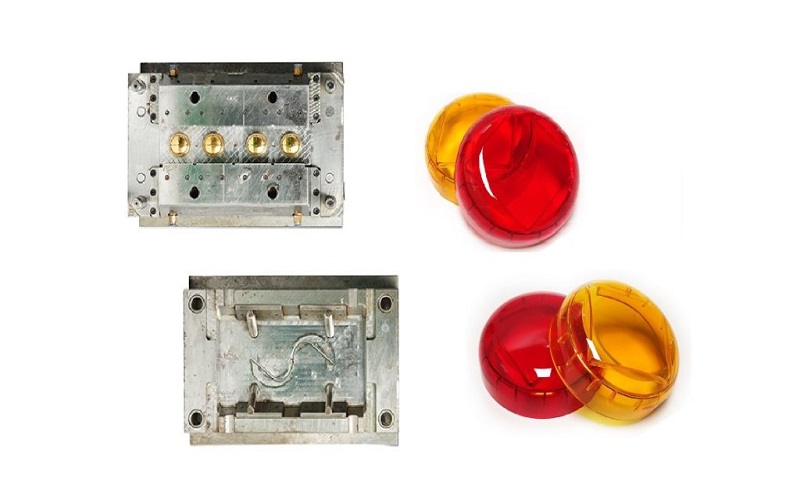
Process Characteristics Of PC Injection Molding
Below is an overview of the process characteristics of PC injection molding:
High Melt Viscosity
Polycarbonate has a relatively high melt viscosity and poor flowability, making it difficult to mold thin walls or parts with complex flow requirements. Therefore, higher injection pressure and precise temperature control are necessary to ensure the melt completely fills the mold.
Strict Drying Requirements
PC is sensitive to moisture; if it absorbs water, hydrolysis can occur at high temperatures, affecting product performance and causing bubbles or degradation. Before injection molding, PC raw material must be dried to a moisture content below 0.02%, usually by drying at 120°C for 4–6 hours.
Temperature Sensitivity
PC has a narrow processing window; mold temperature must be precisely controlled (typically 80–120°C) to balance cooling rate and product surface quality.
Mold temperatures that are too low may cause stress concentration or surface defects, while too high prolong cooling time and reduce production efficiency.
High-Precision Mold Design
Due to PC’s low shrinkage rate (0.5–0.7%), mold design requires precise dimensional control and optimized runner systems. Venting design is particularly important to avoid trapped air causing bubbles or burn marks.
Adaptability to Complex Geometries
Polycarbonate injection molding is suitable for producing complex, high-precision parts but requires reasonable wall thickness design (1–3.8 mm) and rib structure optimization (rib thickness 0.5–0.6 times the wall thickness) to avoid warpage, sink marks, and other defects.

Design Tips Of Polycarbonate Parts
When designing parts for polycarbonate injection molding, several key considerations can help ensure high-quality, functional, and manufacturable components:
Wall Thickness
Maintaining uniform wall thickness between 1 mm to 3.8 mm is critical to avoid warping, sink marks, and internal stresses. Thin walls help reduce cycle times and material usage but require precise control of injection parameters due to polycarbonate’s high melt viscosity.
Rib Thickness
Ribs add structural strength without significantly increasing weight. The rib thickness should be about 50% to 60% of the adjoining wall thickness, and rib height should not exceed three times the wall thickness to prevent sink marks and ensure proper filling.
Draft Angles
Incorporate draft angles of at least 0.5° to 1° on all vertical faces to facilitate easy ejection of parts from the mold and prevent damage to delicate features.
Gate Location
Strategically place gates to minimize weld lines and ensure balanced flow of molten polycarbonate. Proper gate design helps reduce internal stresses and improves surface finish.
Corner Radii
Avoid sharp corners by using radii of at least 3 mm to reduce stress concentration and improve flow during molding.
Surface Finish
Polycarbonate supports a variety of surface finishes, including high gloss, matte, and textured. Choose finishes that meet both aesthetic and functional requirements, such as reducing glare for control panel overlays or enhancing scratch resistance.
By adhering to these design guidelines, manufacturers can optimize the polycarbonate injection molding process, resulting in durable, precise, and visually appealing injection molded parts.
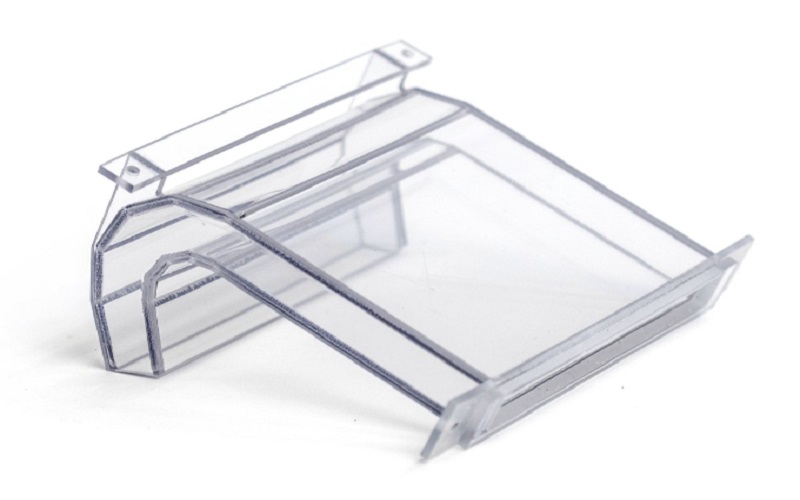
Benefits of PC Injection Molding
The unique properties of polycarbonate have been combined with injection molding technology to further expand its reach and importance in modern products and applications, and the following are some of the benefits of polycarbonate molding:
High Strength and Durability
At the same time, polycarbonate is known for its durability and high impact strength. Using these properties,injection molding of polycarbonate is used to create durable, high-precision products that can withstand harsh environments and extreme temperatures.
Cost-effective for Large-scale Production
One of the main advantages of PC injection molding is the rapid production of high-quality, complex parts. Due to the high throughput and efficiency of the process, parts of uniform size and shape can be produced in large quantities, making it suitable for companies with mass production needs.
Recyclability
Materials discarded during the PC (polycarbonate) injection molding process are frequently recyclable. This practice not only minimizes waste and offers cost benefits to manufacturers but also supports energy conservation and efficient resource utilization. By repurposing this material, the industry aligns itself with green initiatives and reducing its carbon footprint.
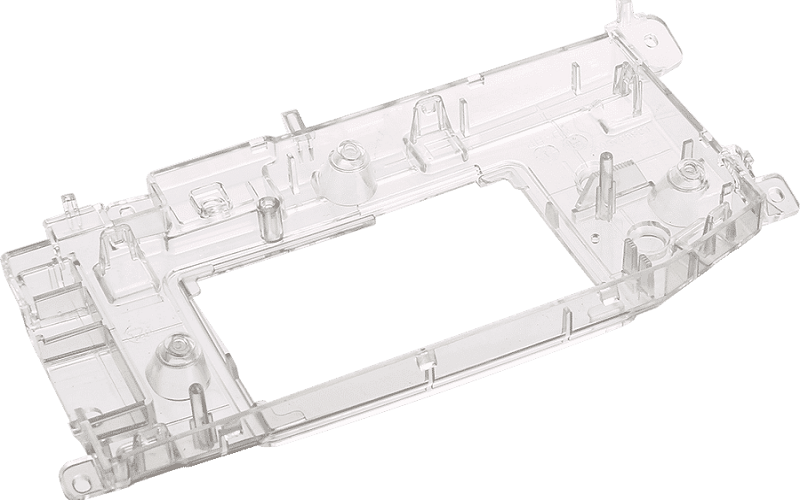
Limitations of PC Injection Molding
It is important to note that while PC materials offer many advantages, they also have some limitations, such as sensitivity to certain chemicals and solvents, susceptibility to scratching, and the need for UV stabilizers in outdoor applications.
Chemical Sensitivity
Polycarbonate (PC) displays sensitivity to specific solvents and chemicals, leading to degradation upon exposure. This susceptibility can restrict its applications, necessitating protective measures or alternative material choices in environments where such chemicals are prevalent.
Easy to Scratch
Although polycarbonate can withstand powerful impacts, its surface scratches easily. In applications where scratch resistance is critical, a coating or hardening process may be required.
UV Degradation
While PC is transparent and has excellent optical properties, it is sensitive to prolonged UV exposure. Over time, untreated PC can yellow and become brittle when exposed to sunlight.It can be modified with additives to enhance its UV resistance, making it suitable for outdoor applications.
Conditions of PC injection molding
Polycarbonate is a widely used injection molding material, but there are many intricate details when using this plastic for injection molding.
Temperature control is crucial throughout the process, as maintaining the correct polycarbonate injection molding temperature and injection molding temperature ensures optimal material flow and reduces the risk of defects. Below are some points to pay attention to when injection molding polycarbonate:
Raw Materials Drying
Polycarbonate is sensitive to moisture, so proper material drying is critical before processing. Ensure that the polycarbonate pellets are adequately dried to prevent moisture-related defects like bubbles or splay marks.The recommended drying conditions are generally 120-150°C and 3-4 hours.
Melt Temperature
Polycarbonate melting point typically in the range of 280-320°C. This parameter may need to be adjusted based on the specific grade of PC used, the part design, and the overall molding conditions.
Mold Temperature
In order to achieve optimal material flow and minimize internal stress, it is generally recommended to maintain the temperature of injection mold polycarbonate between 80-120℃. However, the actual mold temperature may vary depending on the geometry and size of the parts.
Injection Pressure
PC requires high injection pressure to ensure the material fills the entire mold cavity. The actual pressure needed will depend on the part’s size, complexity, and mold design.
Injection Speed
Employ moderate to high injection speeds to ensure proper mold filling, especially for thin-walled parts, while avoiding excessive shear heating. Adjust speed to balance flow and prevent defects like flow marks or burn marks due to trapped air.
- PC Injection Molding Conditions
Drying temperature (℃) | 90~100 | Drying time about (hr) | More than 2 hours |
Mold temperature(℃) | 80~120 | Residual material volume (mm) | 2~8 |
Melt temperature (℃) | 280~320 | Back pressure (MPa) | 6~15 |
Injection pressure (MPa) | 130~180 | Clamping force (ton/in2) | 4~6 |
Injection speed | Medium or high speed | Return speed (rpm) | 60~80 |
Screw type | Standard, fine type (Do not use moisture extraction screw and slingshot nozzle | ||
Machine stopping and disposal | Cleaning with HDPE | Shredded material reuse (%) | 10~25 |
Applications of PC injection molding
Injection molding of polycarbonate is used in a wide variety of industries and applications due to its exceptional properties such as high impact resistance, transparency, and heat resistance.
Additional applications include control panel overlays, where surface finish options like matte or high-gloss can enhance usability, and screw caps, which often benefit from non-glossy finishes to reduce glare and improve functionality.
The size and complexity of parts that can be produced are influenced by the dimensions of the mold halves, as the injection molding machine must accommodate them. Efficient use of raw materials in the injection molding process is also crucial for minimizing waste and reducing overall production costs.
Electronics
Polycarbonate, with its high dielectric properties and excellent heat resistance, is the material of choice for many electronic components. It is used in a wide variety of components such as connectors, insulators, and the bodies of laptops, smartphones, and other electronics.
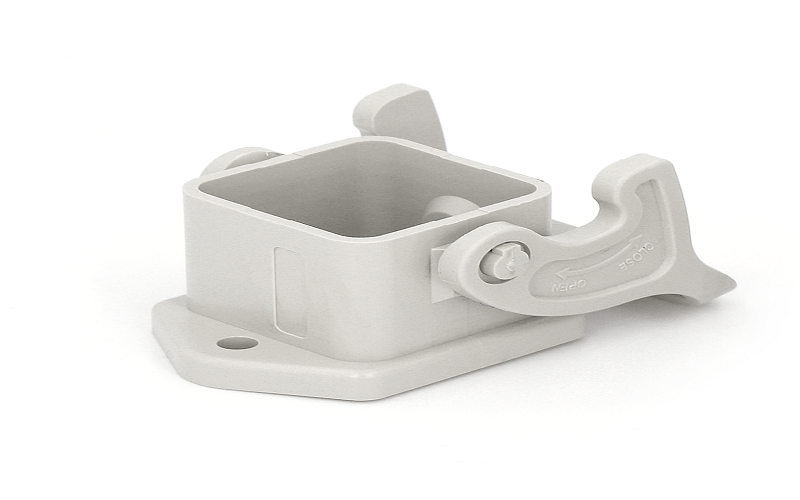
Automotive Components
Polycarbonate’s strength, durability and heat resistance make it an excellent material for a wide variety of automotive parts. From headlight and taillight lenses, which need to withstand a variety of weather conditions, to dashboards, interior panels and bumpers, which offer durability and resilience, polycarbonate is a popular choice.
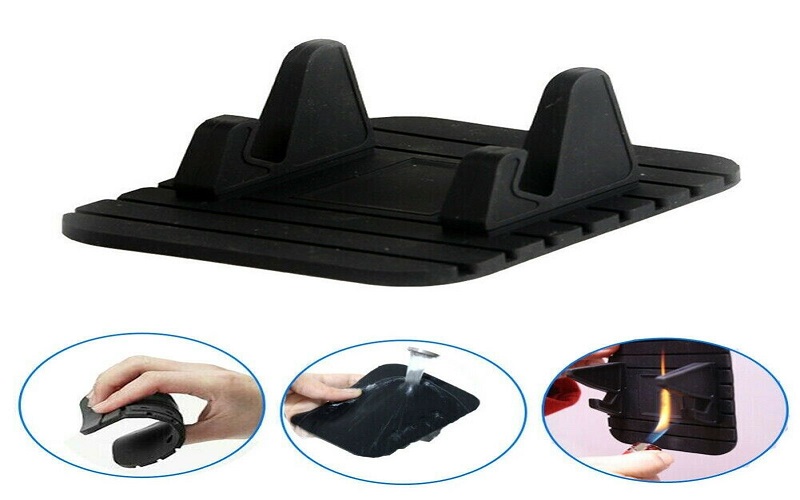
Eyewear
The use of polycarbonate in the manufacture of lenses has been an important factor in innovation in the eyewear industry. These lenses are thinner, lighter and more impact resistant than regular glass lenses. This has made them the first choice for prescription eyeglasses, sunglasses and protective eyewear.
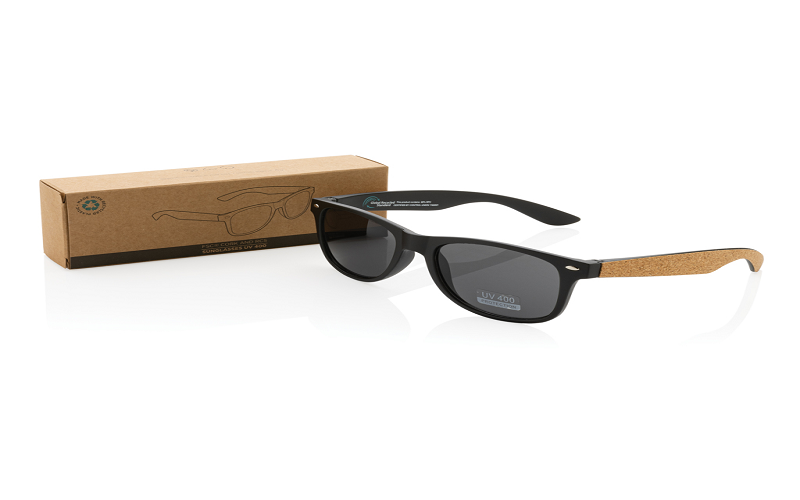
Greenhouses
Due to its transparency and ability to withstand adverse weather conditions, polycarbonate (PC) is an ideal option for greenhouses. It can provide an optimal environment for plant growth while ensuring the longevity and durability of the plants.
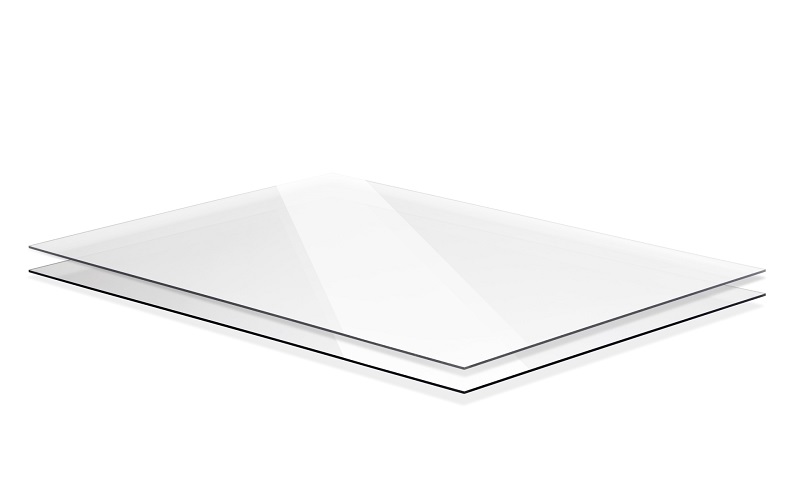
Top 5 PC Injection Molding Companies in China
This list of the top five PC injection molding companies will help you choose the right injection molding supplier.
1.Fow Mould
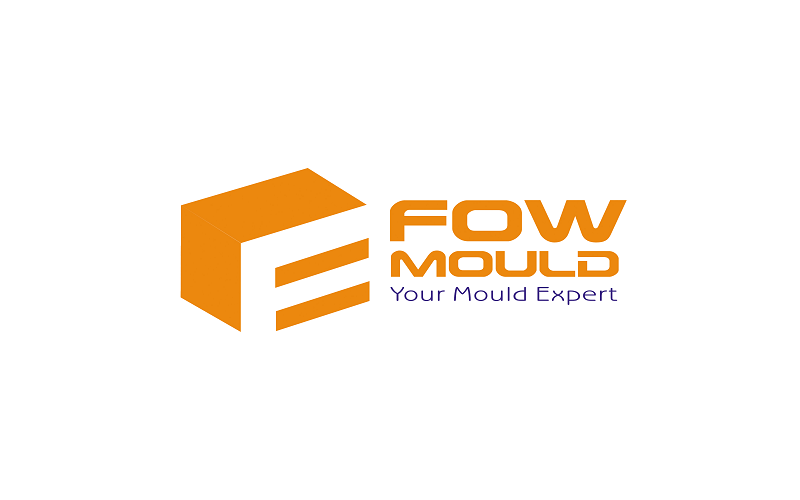
Year Established: 1978
Location: Zhejiang, China
Industry: Manufacturing
FowMould is a plastic moulding manufacturer in China with years of experience in plastic injection moulding of polycarbonate materials and is able to provide high performance precision polycarbonate moulding products for various industries.
Their team is highly skilled in adjusting processing parameters to ensure optimal material consistency and product quality. FowMould also has extensive experience working with different polycarbonate grades, allowing them to meet specific application requirements and deliver products with the desired properties.
With rich working experience and considerate products and services, FowMould has become a well-known supplier of polycarbonate injection molding.
2.Sositar Mould Co., Limited

Year Established: 1998
Location: Shenzhen, China
Industry: Manufacturing
SOSITAR MOULD CO., LIMITED, is Located in Shenzhen, China, and was established in 1998, Sositar Mould Co.,LTD specializes in various plastic moulds parts for automotive, home appliances, medical equipments, electronics and sporting equipments, as well as general industrial OEM applications.
The company has extensive experience in PC injection molding and offers high-quality custom mold making and precision plastic injection molding services, making it a reliable choice.
3. HORD RAPIDTOOLS CO., LTD

Year Established: 2013
Location: GuangDong, China
Industry: Manufacturing
ZHONGSHAN HORD RAPIDTOOLS CO., LTD Mould Co., Ltd. was founded in 2013 and is located in Zhongshan City.
They are a professional manufacturer specializing in rapid tooling and small-batch production, offering customized solutions for various manufacturing processes including injection molding, CNC machining, silicone hot pressing, aluminum die casting, and aluminum extrusion.
They also have the capability to perform over molding, allowing us to create multi-component or multi-material parts by molding layers or components over a pre-formed core.
4.Eco Molding Co., Ltd

Year Established: 2004
Location: Shenzhen, China
Industry: Manufacturing
Certification: ISO 9001:2008
Eco molding Co., Limited, offer plastic injection molding service and specializes in various plastic molds for automotive, home appliances, electronics, as well as general industrial OEM applications.
ECO Molding offers a wide range of plastic materials for the process, such as ABS, PA6, PA66, PP, PC, PC/ABS, PS, POM, PPS, etc., specializing in custom molds and providing PC injection molding services for customers worldwide.
5.RJC Mold

Year Established: 2002
Location: Shenzhen, China
Industry: Manufacturing
RJC Mold is a mold company with widely recognized design and manufacturing services, known for its extensive experience in a variety of materials, including polycarbonate.
The team has particular expertise in using PC material for a wide range of applications, such as safety helmets, electronic device casings, optical discs, and medical equipment including medical devices, housings, and surgical instruments.
RJC’s team consists of highly skilled engineers/designers and specialists with years of experience and a wealth of knowledge to provide the most comprehensive and competent services that our customers require.
Conclusion
In summary, polycarbonate injection molding technique is widely utilized in automotive, electronics, and medical industries due to PC’s exceptional mechanical properties, transparency, and heat resistance.
By optimizing process parameters and well-designed wall thickness and rib structures—manufacturers can significantly enhance part performance and aesthetics while minimizing defects like warping and sink marks.
Leveraging high-rigidity injection machines and efficient drying systems, PC injection molding ensures production efficiency and unlocks vast potential for high-precision and sustainable manufacturing. If you’re planning a PC injection molding project, contact FOWMOULD, and we will tailor a professional molding solution to meet your product requirements.
